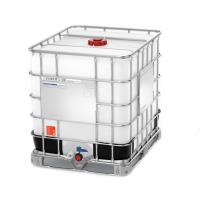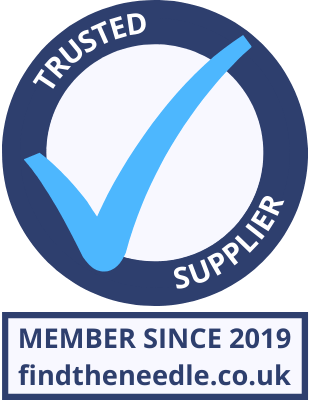 Add My Company
Add My Company
Sign In
Are reconditioned IBCs safe?
06-04-2020

Reconditioned intermediate bulk containers are previously-used containers that have been professionally cleaned for reuse.
A vital factor is what materials these IBCs contained previously.
Therefore, to ensure they are safe, reconditioned IBCs must undergo a rigorous process of cleaning and reconditioning.
DO RECONDITIONED IBCS CONTAIN TRACE CHEMICALS?
Before proper cleaning, intermediate bulk containers may contain trace chemicals from their previous contents.
Reconditioning must, therefore, involve a thorough process.
To meet safety standards, reconditioned IBCs should fulfil the same specifications, and pass the same tests, as brand new IBCs.
The only way to ensure this is by carrying out a professional cleaning regime.
Once the process is complete, the reconditioned IBC is safe to use.
However, while they are suitable for a range of non-hazardous materials, the cleaning process will not guarantee safe use for sterile storage of food and drink or other sensitive materials.
CAN YOU STORE WATER IN RECONDITIONED IBCS?
Reconditioned IBCs have been previously cleaned to a high standard, but we do not recommend you use them for storing drinking water to give to either humans or animals.
You can, however, use them for rainwater harvesting.
WHAT IS THE CLEANING PROCESS FOR RECONDITIONED IBCS?
If possible, it is important to discover what the container was used to store or transport previously.
It may be labelled.
When choosing whether to use a reconditioned IBC, consider what you will be storing in it and also what labelling and tests you might need to meet legal requirements.
Any IBC bottle that has been used to transport hazardous material will definitely need to be expertly cleaned to ensure the safety of its subsequent use.
Typically, the cleaning process should begin with a detailed inspection of the container.
If there are any product residues, this must be suctioned out of the container and carefully disposed of following environmental guidelines where appropriate.
Next, a pressure cleaner will clean the inside of the container with a form of water-based solution.
All its gaskets and caps are replaced with fresh components, and any remaining labels are removed.
The container must then undergo thorough drying and then checking to ensure it is leak-proof.
ARE THERE CONTAMINATION RISKS?
If you are cleaning an IBC for use with the same product again, then a basic level of cleaning may be sufficient.
However, if you are filling the IBC with a different product, then without professional, industrial-grade cleaning, you could risk contamination.
Residues or residual moisture can have an impact on the new product you are filling the container with.
Also, over time, products can permeate the container’s surface so that the plastic itself accumulates a high number of contaminants.
Certain products may also act as solvents when coming into contact with residues from previous materials contained in the IBC.
To make sure your reconditioned IBCs are safe to use, please check that they have been cleaned to professional standards.
GET IN TOUCH
For more details about intermediate bulk containers, please telephone 0333 987 4565, email sales@itppackaging.com, or complete our online contact form, and we will be in touch as soon as possible.
For more information on Are reconditioned IBCs safe? talk to ITP Packaging Ltd
Enquire Now
List your company on FindTheNeedle.

